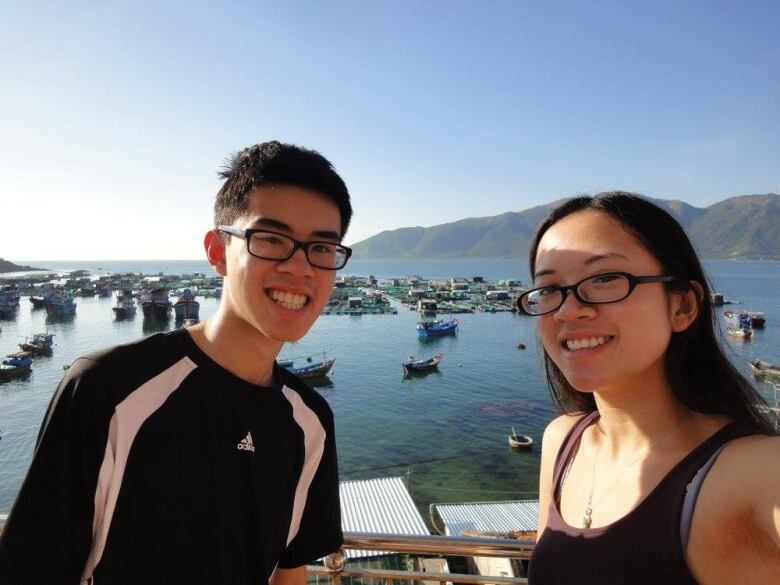The opportunity to give back: how Canada gave my Vietnamese family a new life
For Linda Nguyen, graduating university is a 'culmination of dreams'

Linda Nguyen's parents risked their lives to leave Vietnam in the 1980s. Now, their family is flourishing in Canada.
Throughout 2017, we're asking Canadians, "What's your story?" Nguyen of Brampton, Ont., shares hers.
Here is a picture from my graduation day from university in 2011.
Graduations are a special time of celebration for everyone.
For me, validation of years of hard work.
For my parents, a culmination of dreams for their children — that they could never have dreamed for themselves back home — that started with a boat some twenty years ago.
Married in 1985, my mom and dad left their island (Hon Mieu, Vietnam) in the spring of 1986.

The plan to leave Vietnam was "simple." My grandmother's brother was going to take his fishing boat out to sea and there they would power their way to the Philippines to seek asylum.
At the time, only immediate families knew what was happening; you would be crazy to bid farewell to friends or neighbours. For something like this to work, secrecy was extremely important.
If the Vietnamese government got wind of what was happening, jail was imminent.
"We didn't know if we would ever see our parents again or even visit Vietnam again. I really wanted to go though, for a better life," recalls my mom (who was pregnant at the time with my sister.)
I asked my dad if he was worried about pirates or dying at sea, "You don't think of dying or else you won't go," he says.
"Four nights and four days of sitting," my dad remembers. The boat was so crowded that they barely had any room to get up and stretch.
If it rained, they all get soaked, then the sun would come but they would have to contend with the extreme heat. No shade, no cover. Water was rationed.
When I travel abroad, the proudest thing for me is to say I'm Canadian.
On day four, they ran into an extremely large steel ship. Coast guard? Military?
My dad, to this day, does not know what kind of ship it was but it was "huge" and consisted mainly of Filipinos. They tethered their tiny boat to the vessel and the crew brought everyone aboard.
"The crew gave us food and water and then they dropped us off at a nearby island. We were there maybe a couple of days before immigration officials came," my mom recalls.
After another boat ride and a rocky trip through the mountains they arrived at Palawan Refugee Camp in Puerto Princesa.
My sister would be born in this camp.
Born in Canada
It was 1987 when my parents and sister eventually arrived in Canada. I was born barely a year later.
"When you were born, we had still not fully resettled. We had no car so I would ride my bicycle to the hospital to visit your mom and bring her congee," my dad remembers.
"When it was time to take you home from the hospital, one of the nurses who cared for us gave us a ride home," says my mom. How Canadian is that?

To thrive, to live, to give back
One of the things my mom said to me when I was asking her about these events was, "Thinking back, it was terrible. I wouldn't do it again … but what could we do? There was no life back for us in Vietnam. We had no choice."
Was my mom right? Today, they have two daughters who have finished post-secondary education and a son entering university in the fall. Starting off with nothing, my family slowly rose through the ranks to now sit comfortably in what is considered "middle class."
None of this, I know for certain, would be possible it not for the open immigration policy that Canada had in place for Vietnamese refugees in the '70s and '80s. That opportunity has allowed us first-generation immigrants to thrive, to live, to give back to the country that we love so much. When I travel abroad, the proudest thing for me is to say I'm Canadian.
